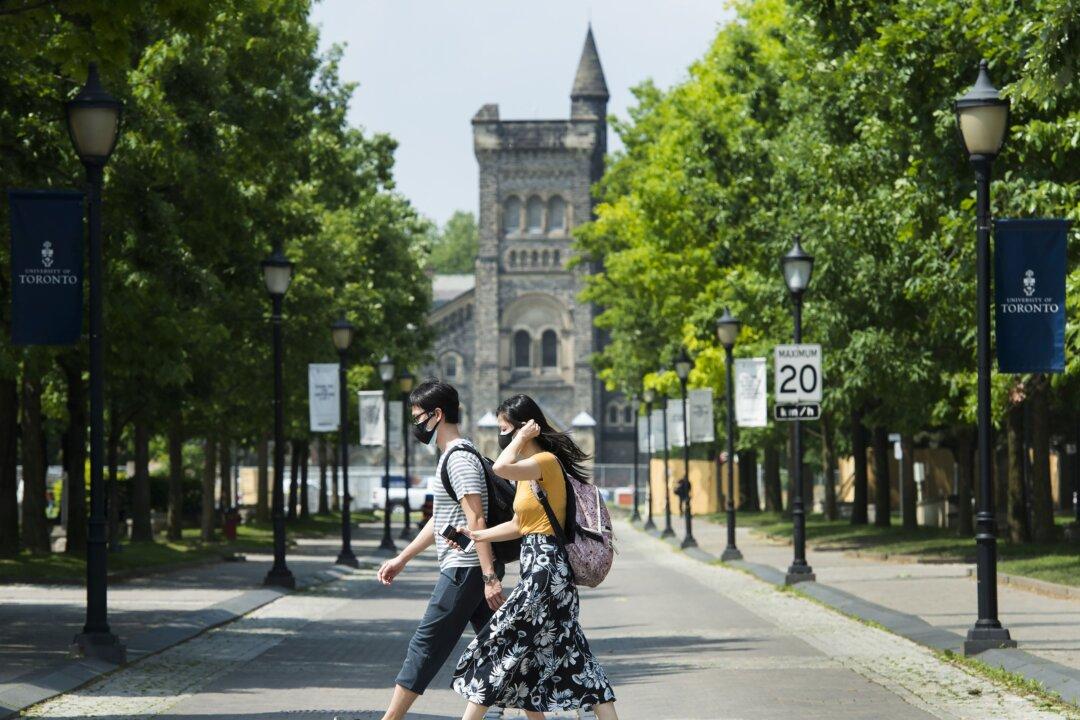The University of Toronto is revoking its COVID-19 vaccine mandate and other related policies after a human rights complaint was filed against the school.
Effective May 1, the following measures will be paused: the requirement to complete a health screening prior to entering university premises, the requirement to be fully vaccinated for in-person activities on university premises, and the requirement to be masked in indoor spaces unless otherwise required, the university said this week on its website.





